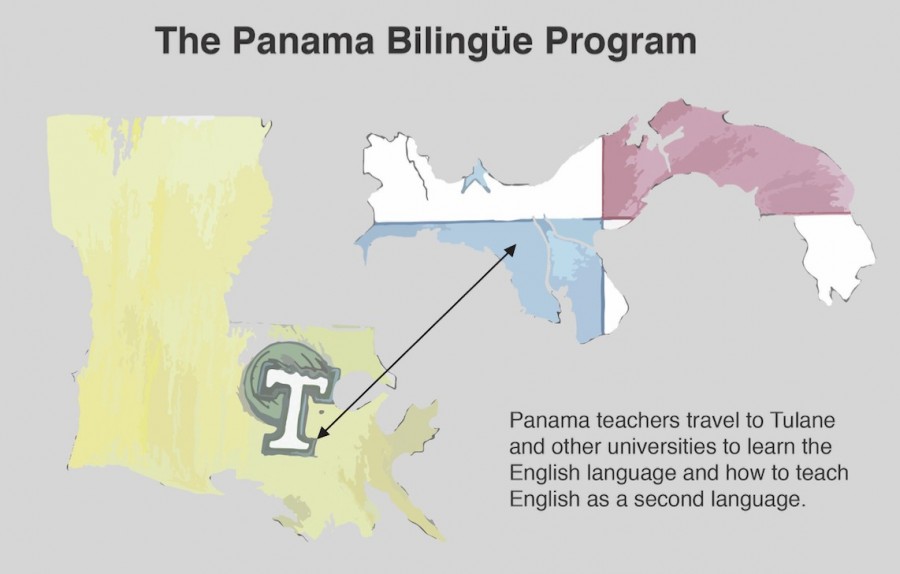Tulane participates in Panama Bilingüe language program
Panamanian President Juan Carlos Varela Rodríguez has a mission to make his entire country bilingual in English and Spanish. To do so, he has enlisted the help of Tulane University and several other elite universities across the globe.
Tulane is one of 20 international universities participating in Panama Bilingüe, a Panamanian policy initiative to teach a second language to a country of more than 3.7 million people. The program trains Panamanian teachers to speak English and to teach English as a second language to their students. Tulane and other universities including Michigan State University, Georgetown University and Southeastern Louisiana University are taking on the task of teaching those teachers.
Tulane’s English as a Second Language program oversees the university’s participation with Panama Bilingüe.
“I’d say it’s one of the most ambitious language planning projects around,” Robert Connor, director of Tulane’s English as a Second Language program, said. “… to have a country, especially one in Latin America, I can’t think of any other examples [that would] do such an ambitious project.”
So far, Tulane has worked with four groups of Panamanian teachers through Panama Bilingüe with group sizes ranging from 15-25 students. Each group stays in New Orleans for eight weeks and participates in a variety of activities through which they learn about English and education, while also experiencing life on and around Tulane’s campus.
According to John Depriest and Megan Ritterbusch, both English as a Second Language staff instructors working with Tulane’s Panama Bilingüe program, some of their Panamanian students’ favorite activities include local classroom observation, a Design Thinking workshop, student-led reading groups and a program called Conversation Partners. Run by undergraduates, Conversation Partners matches each Panamanian student with a Tulane undergraduate student who speaks English fluently and with whom they have an hour-long conversation every week.
Ritterbusch said Tulane seems to be a popular choice among Panamanian participants, attributing this in part to New Orleans’ agreeable weather and festivities and to the more highly individualized program she said Tulane offers compared to those of some of the other participating universities.
“Tulane University gave me the greatest gift of my life,” Frida Mijango, Panamanian teacher and Tulane’s Panama Bilingüe participant, said. “[It] not only changed the way in which I view the world but also my philosophy of teaching English.”
In a press release, President Varela said he hopes Panama Bilingüe will bring economic opportunity to the country by making it more economically competitive. Depriest agrees.
“Previously, basically the only people who had access to English language instruction, and therefore the shipping, banking and tourism jobs, were those who grew up in the canal zone or were quite wealthy,” Depriest said. “So now, basically every student who goes to any school … [has] the opportunity to advance in their English proficiency, which then opens up these kinds of jobs to them.”
Outside of the international teacher training program, Panama Bilingüe also has a local teacher training program, an after-school program for high school students and an elementary school program to teach some regular academic classes in English. So far, Panama has trained more than 70,000 of its citizens through all of Panama Bilingüe’s programs, according to a Panamanian government press release.
Your donation will support the student journalists of Tulane University. Your contribution will allow us to purchase equipment and cover our annual website hosting costs.
















Leave a Comment